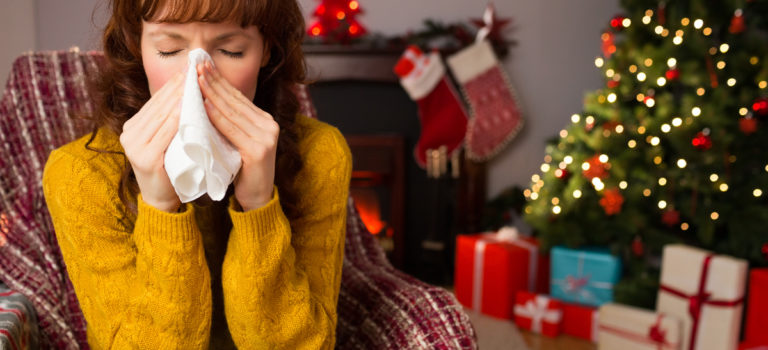‘Tis the season to be jolly, not sick! But unfortunately, catching a cold or the flu during the holidays is quite common. And as millions of Americans travel to visit family and friends, there is an increased risk of spreading flu-based germs. The Center for Disease Control (CDC) states that December is a peak flu month with the increased risk continuing all the way through February. While there is no definite answer as to why that is, the spike in susceptibility is often linked to people spending more time in close quarters more often through travel and indoor activities.
No one wants to sneeze and sniffle their way through the holidays, so here are some tips to help keep you flu free:
- Get a flu shot. An annual flu shot not only protects you, but also protects others, too. The CDC recommends a yearly flu vaccine for those six months old and older as the first and most important step in protecting against the flu virus.
- Practice Good Hand Hygiene. Wash your hands often with soap and water or use an alcohol-based hand sanitizer to reduce the spread of germs. It is especially important to clean your hands after using the restroom, after sneezing or coughing and after being around someone who is ill.
- Eat Healthy. Fuel your body with foods high in vitamins and minerals that help your body fight illness. Limit your intake of soda, processed foods, refined carbohydrates and alcoholic beverages, which can all compromise your immune system.
- Exercise Regularly. Regular exercise can increase your body’s virus-fighting abilities. When you exercise, your infection fighting white blood cells travel faster through your body, making it easier for them to do their jobs and keep you healthy.
- Sleep Well. One of the simplest things you can do to fight the flu is make sure you’re well rested. Most adults need between seven and nine hours of sleep per night, giving your body plenty of time to regroup and re-energize.
If you begin to feel sick or experience flu-like symptoms (fever, sore throat, body aches and fatigue), it is best to stay home and avoid contact with others. If your symptoms intensify or last longer than seven days, it is best to consult your doctor.

